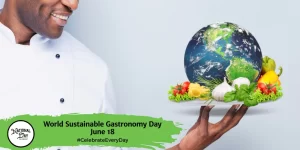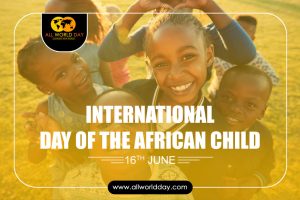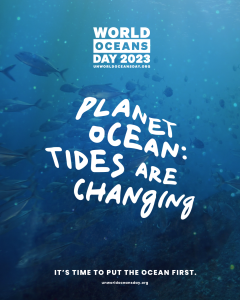 2023 Theme: Hope Away from Home
2023 Theme: Hope Away from Home
World Refugee Day is an international day designated by the United Nations to honour refugees around the globe. It falls each year on June 20 and celebrates the strength and courage of people who have been forced to flee their home country to escape conflict or persecution. World Refugee Day is an occasion to build empathy and understanding for their plight and to recognize their resilience in rebuilding their lives.
Background
Every minute 20 people leave everything behind to escape war, persecution or terror. There are several types of forcibly displaced persons:
Refugees
A refugee is someone who fled his or her home and country owing to “a well-founded fear of persecution because of his/her race, religion, nationality, membership in a particular social group, or political opinion”, according to the United Nations 1951 Refugee Convention. Many refugees are in exile to escape the effects of natural or human-made disasters.
Asylum Seekers
Asylum seekers say they are refugees and have fled their homes as refugees do, but their claim to refugee status is not yet definitively evaluated in the country to which they fled.
Internally Displaced Persons
Internally Displaced Persons (IDPs) are people who have not crossed an international border but have moved to a different region than the one they call home within their own country.
Stateless Persons
Stateless persons do not have a recognized nationality and do not belong to any country.
Statelessness situations are usually caused by discrimination against certain groups. Their lack of identification — a citizenship certificate — can exclude them from access to important government services, including health care, education or employment.
Returnees
Returnees are former refugees who return to their own countries or regions of origin after time in exile. Returnees need continuous support and reintegration assistance to ensure that they can rebuild their lives at home.
UN Action
1951 Refugee Convention and its 1967 Protocol
Refugees are among the most vulnerable people in the world. The 1951 Refugee Convention and its 1967 Protocol help protect them. They are the only global legal instruments explicitly covering the most important aspects of a refugee’s life. According to their provisions, refugees deserve, as a minimum, the same standards of treatment enjoyed by other foreign nationals in a given country and, in many cases, the same treatment as nationals.
The 1951 Convention contains a number of rights and also highlights the obligations of refugees towards their host country. The cornerstone of the 1951 Convention is the principle of non-refoulement. According to this principle, a refugee should not be returned to a country where he or she faces serious threats to his or her life or freedom. This protection may not be claimed by refugees who are reasonably regarded as a danger to the security of the country, or having been convicted of a particularly serious crime, are considered a danger to the community.
The rights contained in the 1951 Convention include:
- The right not to be expelled, except under certain, strictly defined conditions;
- The right not to be punished for illegal entry into the territory of a contracting State;
- The right to work;
- The right to housing;
- The right to education;
- The right to public relief and assistance;
- The right to freedom of religion;
- The right to access the courts;
- The right to freedom of movement within the territory;
- The right to be issued identity and travel documents.
Some basic rights, including the right to be protected from refoulement, apply to all refugees. A refugee becomes entitled to other rights the longer they remain in the host country, which is based on the recognition that the longer they remain as refugees, the more rights they need.

 Word Sustainable Gastronomy Day on June 18 recognizes the practices and principals associated with sustainable food consumption combined with the art of collecting, preparing, and consuming the food we eat. As part of the observance, the day acknowledges the social, cultural, and artistic expression related to gastronomy and defines three dimensions of sustainable development – people, planet, and profit.
Word Sustainable Gastronomy Day on June 18 recognizes the practices and principals associated with sustainable food consumption combined with the art of collecting, preparing, and consuming the food we eat. As part of the observance, the day acknowledges the social, cultural, and artistic expression related to gastronomy and defines three dimensions of sustainable development – people, planet, and profit. Her Land. Her Rights.
Her Land. Her Rights.  In fact, these questions are directed to… God himself!
In fact, these questions are directed to… God himself! The International Day of the African Child is a significant event that honors the courage, resilience, and potential of African children. Celebrated annually on June 16th, this day raises awareness about the rights, needs, and challenges faced by children across the African continent. In this blog, we will explore the history of this day, its theme for 2023, the importance of celebration, ways to observe the occasion, and inspiring quotes that capture the spirit of the African child.
The International Day of the African Child is a significant event that honors the courage, resilience, and potential of African children. Celebrated annually on June 16th, this day raises awareness about the rights, needs, and challenges faced by children across the African continent. In this blog, we will explore the history of this day, its theme for 2023, the importance of celebration, ways to observe the occasion, and inspiring quotes that capture the spirit of the African child. The slogan for 2023 World Blood Donor Day campaign, celebrated on 14 June 2023, is “Give blood, give plasma, share life, share often.” It focuses on patients requiring life-long transfusion support and underlines the role every single person can play, by giving the valuable gift of blood or plasma. It also highlights the importance of giving blood or plasma regularly to create a safe and sustainable supply of blood and blood products that can be always available, all over the world, so that all patients in need can receive timely treatment.
The slogan for 2023 World Blood Donor Day campaign, celebrated on 14 June 2023, is “Give blood, give plasma, share life, share often.” It focuses on patients requiring life-long transfusion support and underlines the role every single person can play, by giving the valuable gift of blood or plasma. It also highlights the importance of giving blood or plasma regularly to create a safe and sustainable supply of blood and blood products that can be always available, all over the world, so that all patients in need can receive timely treatment. June 11th is known as International Lynx Day. Lynx is the biggest wild cat in Europe. Each one of them displays a distinct coat pattern, and so it’s possible to differentiate a lynx from another! Nine thousand specimens are found across central European forests thanks to reintroduction programs that began in the 1970s.
June 11th is known as International Lynx Day. Lynx is the biggest wild cat in Europe. Each one of them displays a distinct coat pattern, and so it’s possible to differentiate a lynx from another! Nine thousand specimens are found across central European forests thanks to reintroduction programs that began in the 1970s. When reading some texts of the gospel, I like to note the reaction of people listening to Jesus.
When reading some texts of the gospel, I like to note the reaction of people listening to Jesus. Celebrate Archives!
Celebrate Archives!  Planet Ocean: tides are changing
Planet Ocean: tides are changing